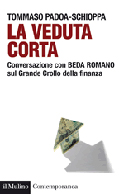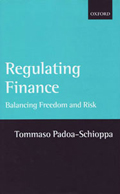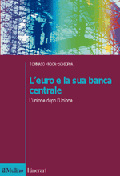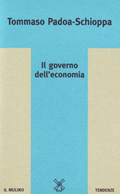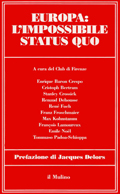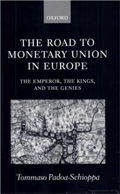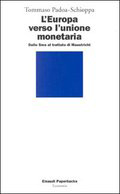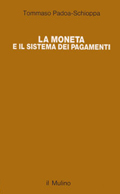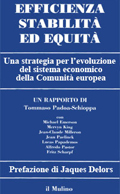
Out of the Crisis: a “Real” Economy and World Governance System
alien “financial capitalism”, concluded MEPs and experts at a public hearing held on Thursday by Parliament’s special committee on the crisis.
World governance was the focus of the sixth public hearing held by Parliament’s Special Committee on the Financial, Economic and Social Crisis (CRIS) on Thursday 25 March. Debate centred on the origins of the current crisis, measures to take, notably as regards taxing financial transactions and the problem of tax evasion, and the impact of the crisis on emerging countries.
The crisis is global, so governance must be, too
“Only the crisis could correct accumulated imbalances, since the world economy, deprived of governance, and the United States, responsible for this macro-economic imbalance, did not do so”, said Tommaso Padoa-Schioppa, President of the “Notre Europe” association, Italy’s former economy and finance minister and a member of the European Central Bank’s Executive Board. The global nature of the crisis is not an argument against globalisation, but one in favour of a new world governance, he argued.
IMF and G20 tried by the crisis
Participants acknowledged that the crisis had imposed some adjustments to the international system. The IMF had successfully redefined its policy of lending to states, said its representative Bert van Selm. “To whoever comes to us, we give the advice we think best”, he said. But this advice is often ill-suited
to emerging countries, according to European Network on Debt and Development Director Núria Molina. “What is a rule for us does not automatically apply to the rest of the world. I think, for example, that protectionism in favour of a threatened economic sector in a developing country may be justified”, she said.
Asked by Kay Swinburne (ECR, UK) whether there was a need to revise the Maastricht criteria, which require Euro zone countries to keep public debt below 60% of GDP, the IMF representative declined to comment on the EMU’s internal rules. Crisis committee chair Wolf Klinz (ALDE, DE) said he was disappointed with G20 activities in the past year and a half. This institution, which Tommaso Padoa-Schioppa had observed was more representative of the worldwide situation than the G7, is also a platform for co-operation among heads of state (unlike the IMF), but there are still regions of the world and countries that are under-represented in it, or not represented at all, observed Bert van Selm.
Governance by markets is not an option
Faced with the “sovereign debt trap” evoked by Danuta Hübner (EPP, PL) – in which, due to the crisis, not only third world countries but some indebted western ones are now caught – today’s financial institutions have little room for manoeuvre, notably in the case of Greece. Markets, long considered capable of regulating themselves cannot replace modern world governance either, because they “cannot manage externalities” (unwanted collateral effects of economic activity, such as pollution). Only public authorities can do so in a co-ordinated fashion, said Sony Kapoor of the think-tank “Re-define”.
Stephane Schulmeister, of the Austrian economic research institute WIFO also stressed the worldwide interdependence of economic players, notably with regard to the link between
deficits and surpluses. Reducing spending in a country running a deficit, such as Italy, will have a negative impact on the economy of one running a surplus, such as Germany, he said.
EU model and crisis-tested Euro
The EU approach, founded on the real economy and opposed to financial capitalism, could constitute an effective response to the crisis, but unfortunately the crisis struck at a time when the EU is in “an incomplete stage of its construction”, according to Mr Padoa-Schioppa. Although the crisis started outside the EU, the EU could be its biggest victim. But the EU should make
itself heard, not only at the IMF and World Bank, but also the WTO, said Charles Goerens (ALDE, LU). It should also put its own house in order (Kay Swineburne) before lecturing others, and, above all, find a European response to the Greek crisis.
Greece is part of the integrated Community system and the EU must consider Greek problems its own, so IMF intervention would not be acceptable, said Mr Padoa-Schioppa in reply to a question by Theodor Stolojan (EPP, RO). However, a “mixed solution” (EU and IMF) could be a solution, said Othmar Karas (EPP, AT). But it is not just a matter of saving Greece now – the lack of European monetary fund raises the issue of systemic solutions within the Euro zone, added Vito Bonsignore (EPP, IT).
Transaction tax and tax havens: EU can act alone
The EU, as the world’s leading real economy, is also able to tax financial transactions unilaterally, failing an agreement with its partners, said Stephane Schulmeister in a reply to Charles Goerens, Pervenche Berès (S&D, FR) and Pascal Canfin (Greens/EFA, FR). It is Europe’s financial centres, London and Frankfurt, which would be most affected by these measures, as the volume of transactions they handle could be reduced by 30% to 80%, according to a WIFO study, but “the production volume of the EU as a whole is sufficient for tax revenue to remain large enough” to cope with the new market situation.




